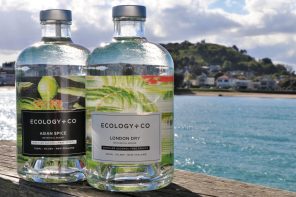The market has continued to witness an explosion of artisanal alternatives as food and beverage manufacturers tap into trends like provenance, locally sourced, handmade, authenticity, and brand trust. New product developments in the beverages, bakery, snacking and confectionery segments are using artisanal claims – but what does “artisan” really mean? And why does it appeal to consumers?

Artisan or artisanal, as a term used in the broader sense, somehow sets the product apart from the rest because it has been made with real expertise and flair. It conjures up images of something being homemade with high-quality ingredients in a non-merchandised and more thoughtful way – all factors that play right into what today’s ethically-minded and health-conscious consumers are looking for.
Craft products play directly into artisan and premium, not least because the word ignites the same sort of connotations as artisan – a carefully and well-made product worthy of a premium price tag.
Craft Drinks
Craft beer and coffee are two sectors where artisanal startups have become so popular that multinational leading players snap up the business through acquisitions. Similarly, numerous craft beer outfits are now owned by big beer producers scooping up the artisan breweries of high-end ales that continue to resonate with consumers.

While coffee is clearly trending among Millennial and Generation Z consumers, tea is also seeking to reinvent itself among the younger generations. With the taste and experiential associations of coffee and the healthy image of tea, the industry is increasingly using coffee and tea as ingredients and flavours outside the hot drinks and iced tea and coffee sub-categories across a wide variety of products as varied as energy bars, yoghurt, and jam.
Slow Food

‘Slow food’ is produced or prepared in accordance with local culinary traditions, typically using high-quality locally sourced ingredients.
“People are more and more concerned about the consequences of their choices and the impact on the environment when they buy their food,” noted Paola Nano from Slow Food, a non-profit organization that promotes local food and traditional cooking.
“They are also afraid about the health issue: it is evident that diabetes, obesity and heart disease have a close relation to food habits and lifestyle. Some people are also guided by ethical principles and pay attention to the fair origin of products.”
Artisan food products are often healthy (either for you or the planet) in addition to tasting good, fitting seamlessly into current consumer trends that put health, wellbeing, and the environment at the top of consumer concerns.
People are more aware of their food’s footprint and origin, as well as their own personalised nutrition which means that artisan products will continue to be popular and sought after by retailers and consumers alike.
Have you entered the NZ Artisan Awards? Click here to enter now!






